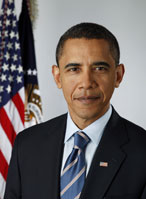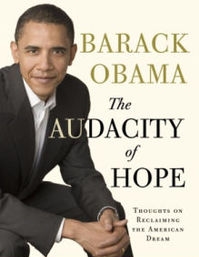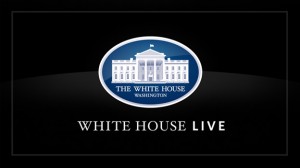Obama's Back-to-School Address 2

US President Obama
On Tuesday, September 8th, 2009, U.S. President Barack Obama will address his nation’s schoolchildren, with a message of encouragement and challenge. The speech will be broadcast on cSpan and streamed live on the Internet, starting at 12:00 noon and timed to run for around 18 minutes.
And you would not believe the controversy that has arisen in The States as a result.
- Schools and Districts are not allowing the viewing of the speech.
- Parents are furious their children are being denied the opportunity to see the speech at school.
- Parents are threatening to keep their children home from school.
- Schools are issuing Parental Permission Forms and Opt-out coupons.
- Schools are denying opt-out opportunities.
- Congressmen and Governors are publicly condemning the President’s intent.
- Educators are all a twitter (!) over the uproar.
Note that the word “Some” should be judiciously applied to each and every one of the statements above! Suffice to say, the very fact that there is considerable discussion around the “banning” of Obama’s speech in the first place has many educators in dismay.
 First, a disclaimer. I am a Canadian educator, teaching in a middle school in Ontario, Canada. Are you surprised to know that I intend to screen the speech and discuss it with my students grade 7 students on Tuesday? Why, you might ask?
First, a disclaimer. I am a Canadian educator, teaching in a middle school in Ontario, Canada. Are you surprised to know that I intend to screen the speech and discuss it with my students grade 7 students on Tuesday? Why, you might ask?
I guess on one hand, I figure it’s going to be a good speach, dynamically delivered, and intended for an audience pretty much congruent with my own students. And I don’t think the border between our two countries will change the context for my students too significantly, do you? After all, learners are learners. And I’m sure we’ll be more than capable of unpacking any specific-to-The-States rhetoric and applying our own Canadian view.
But why do I really see this as an activity worthy of devoting an hour (or maybe an afternoon) for my grade 7 students? Because I believe that our children need to see, hear, discuss, and learn in an environment shaped by effective leadership. They need to respond to the challenge of learning.
So what makes Obama and his speech a good candidate for such a learning opportunity?
1) Delivery: Obama’s reputatation as a dynamic speaker preceeds him.
2) Audience: Obama is addressing students directly, with a message intended to speak to their context.
3) Message: Obama’s message will encourage grade school students (K-12) to set goals, work hard, and persevere. The importance of personal responsibility, and the need to take their education very seriously will be key messages. Sounds valuable.
4) Reputation: Obama has set a very valued precedent with his annual Fathers’ Day efforts. He is on record for several years now in advocating for fathers to “Step Up” and take greater responsibility for their children. (Watch Obama’s 2008 Fathers’ Day speech.) To me, this seems like formal leadership incarnate: setting an important challenge, encouraging others to follow.
(A quick review of Tuesday’s Speech Notes, posted online a day before the address, show that Obama is not side-stepping or sugar-coating this very present and pressing reality of modern society. In his speech to schoolchildren, he speaks directly about his own childhood and absentee father, and of the many challenges that students must also learn to overcome. Powerful words. Powerful encouragement.)
5) Position: Obama is the elected leader of our neighbour to the south. With that endorsement comes considerable status, and his actions and influences do affect us in our country. Makes sense to listen.
Now, as to the consternation in the US:
 The considerable debate seems to arise from partisan concerns within the different camps of the American political scene. One of the first themes Obama addresses in his most recent book, The Audacity of Hope ( … oh yeah, he’s also written books, too …) is that of the historically partisan nature of American politics. Were Congress and the Senate to do a better job at transcending those party lines, far more energy could be positively focussed on making things work better. (When I see our own Canadian Members of Parliament shouting across the floor of the House of Commons at one another during Question Period, I shudder. Don’t you? We expect more from our elected representatives.) And so, in this instance, when Conservatives in the US have come out on record against Obama’s plan to address schoolchidren, one has to wonder what might be so concerning in the speech as to draw out such ire. Truth be told, there’s not much in the speech that anyone could find offense with. But some politicians, or district administrators, and even parents are concerned enough as to suggest that the speech be blocked, firewalled, or edited out of the school day. Avoided, for the potential disruption it may bring.
The considerable debate seems to arise from partisan concerns within the different camps of the American political scene. One of the first themes Obama addresses in his most recent book, The Audacity of Hope ( … oh yeah, he’s also written books, too …) is that of the historically partisan nature of American politics. Were Congress and the Senate to do a better job at transcending those party lines, far more energy could be positively focussed on making things work better. (When I see our own Canadian Members of Parliament shouting across the floor of the House of Commons at one another during Question Period, I shudder. Don’t you? We expect more from our elected representatives.) And so, in this instance, when Conservatives in the US have come out on record against Obama’s plan to address schoolchidren, one has to wonder what might be so concerning in the speech as to draw out such ire. Truth be told, there’s not much in the speech that anyone could find offense with. But some politicians, or district administrators, and even parents are concerned enough as to suggest that the speech be blocked, firewalled, or edited out of the school day. Avoided, for the potential disruption it may bring.
I think the key take-away here is the significant demonstration of overt leadership (NO c on that overt) that Obama is making here — this is a key role that some (not all) heads-of-state are highly respected for. The world doesn’t get high-quality orators coincident within every single world leader. Some operate less visibly and can go for days or weeks without significant press coverage or sound bite opportunities. Some just haven’t crafted their skills in delivery to such extent.
But Obama here seems to be going for more than just the sound bite. Here, in this context, he’s talking to the children. In the speech proper, he references other audiences/contexts where he has pleaded for responsible action and careful thought. And maybe this is what has some folks up in arms — the potential power inherent in the words of a dynamic and charismatic speaker. And maybe some are concerned that his words and delivery just might be able to achieve some success where NCLB hasn’t.
One can think of the moon landing speech given by JFK and the vision resulting in the decade-long drive to put man on the moon — a leader speaking and galvanizing a nation.
One can think of the powerful Martin Luther King Jr. “I have a dream” oratory that brought about powerful change in the history of the United States.
Sometimes, leaders need to “step up” and lead. Lead by speaking their mind in a powerful and dynamic manner, making decisions, setting goals, encouraging collaboration. Sometimes, this can come as a challenge to the status quo. Seems to me that winning the presidency presents Obama with both the opportunity and the responsibility to work to effect that change.
Here are a few concepts I’ll leave you with. They resonate with the tensions that may exist within many educators this weekend, catalyzed by the Obama Speech controversy.
- Power and authority.
- Firewalls, Gatekeepers, and Censorship.
- Professional Responsibility and Decision Making.
- Parenting.
- Personal Responsibility.
- Participatory Citizenship.
- Indoctrination? or Leadership?
As educators, we need our learners to be able to successfully discuss and deal with these tensions. Hopefully their parents, their community leaders, and their governments can let them, and learn to do the same.
And always, we need to remember that demonstrating leadership is a critically important part of being an educator.



